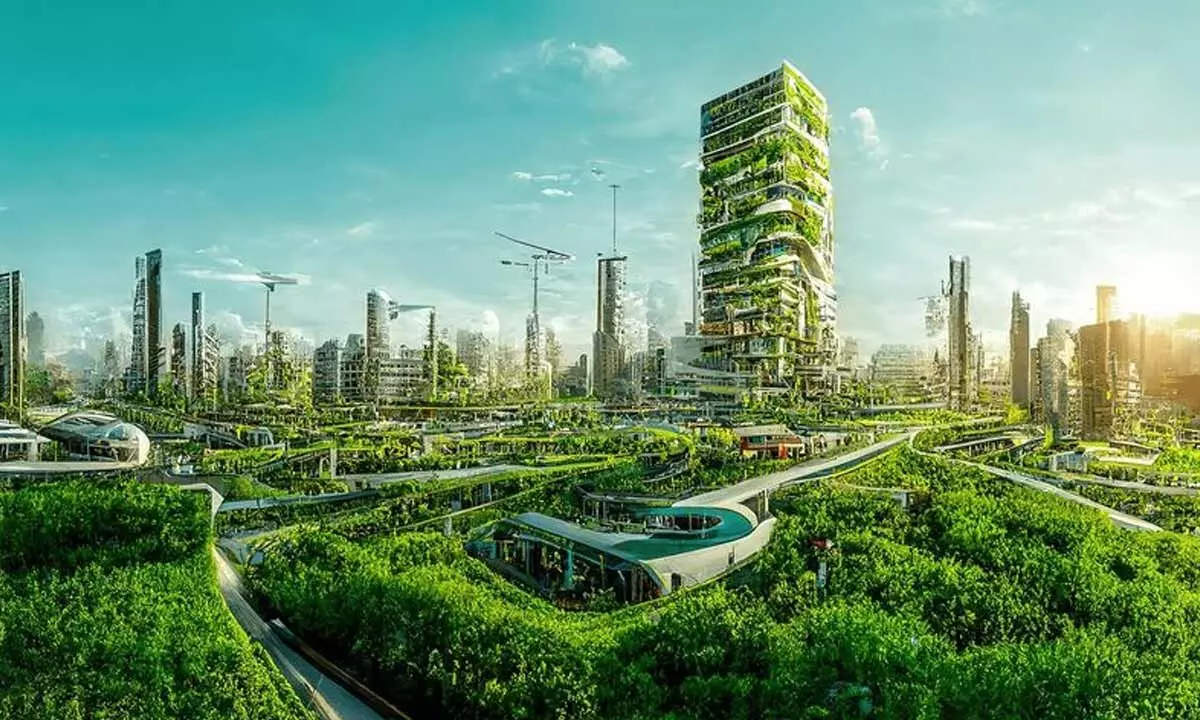Urban Transformation

Embracing eco-friendly living for a sustainable future
In the ever-evolving urban landscape, a significant shift towards eco-friendly living is gaining momentum as cities prioritize sustainability in their development. This movement is not just about reducing carbon footprints but also enhancing the quality of life for urban dwellers through innovative approaches across various facets of city life.
Sustainable architecture leading the charge
Key to this transformation is sustainable architecture, where buildings are designed with a keen focus on environmental impact. Cities like Copenhagen are at the forefront, showcasing structures that incorporate renewable energy sources, green roofs, and efficient water management systems. These architectural marvels not only reduce energy consumption but also contribute positively to urban biodiversity and mitigate the urban heat island effect.
Innovative designs such as passive solar buildings are becoming increasingly popular, harnessing natural sunlight and ventilation for heating and cooling without relying heavily on artificial energy sources. Additionally, the use of recycled materials in construction promotes circular economy principles, minimizing waste and environmental degradation.
Revolutionizing urban farming and green spaces
Urban farming initiatives are revolutionizing cityscapes b transforming rooftops, vacant lots, and vertical spaces into lush green oases. Cities like Singapore have embraced vertical farming, maximizing space efficiency while reducing the carbon footprint associated with food production and transportation. Community gardens and rooftop farms not only provide fresh, organic produce but also foster community cohesion and reconnect urban residents with nature.
Promoting sustainable transportation
Eco-friendly living extends beyond buildings to transportation solutions that prioritize reducing carbon emissions. Cities worldwide are investing in public transit systems, cycling infrastructure, and electric vehicle (EV) charging networks to encourage sustainable commuting options. Amsterdam and Copenhagen, renowned for their cycling culture, exemplify urban areas where bicycles outnumber cars, reflecting a shift towards greener mobility solutions.
Advancing waste management and recycling
Effective waste management is critical in densely populated urban areas where consumption rates are high. Cities are implementing comprehensive recycling programs and composting initiatives to divert organic waste from landfills and promote resource efficiency. The adoption of single-stream recycling simplifies the process for residents, while upcycling initiatives encourage creative reuse of materials, reducing overall waste generation.
Community engagement driving change
Central to the success of eco-friendly urban living is community engagement and advocacy. Residents, businesses, and local governments collaborate through eco-friendly festivals, environmental education programs, and grassroots initiatives advocating for sustainable urban development. These efforts empower individuals to influence policy decisions and foster a culture of environmental stewardship in their communities.
Towards a greener urban future
As cities continue to grow and face environmental challenges, the shift towards eco-friendly living practices becomes increasingly imperative. Sustainable architecture, urban farming, green transportation, waste reduction, and community engagement are pivotal in shaping resilient and sustainable urban spaces. By embracing these initiatives, cities can set a precedent for global sustainability efforts, ensuring a healthier, greener future for generations to come.
Through innovation, collaboration, and a shared commitment to sustainability, urban areas are paving the way towards a brighter and more eco-conscious future. By integrating these practices into urban planning and everyday life, cities can lead the charge in mitigating climate change and preserving natural resources for future generations.
(Features Desk)








